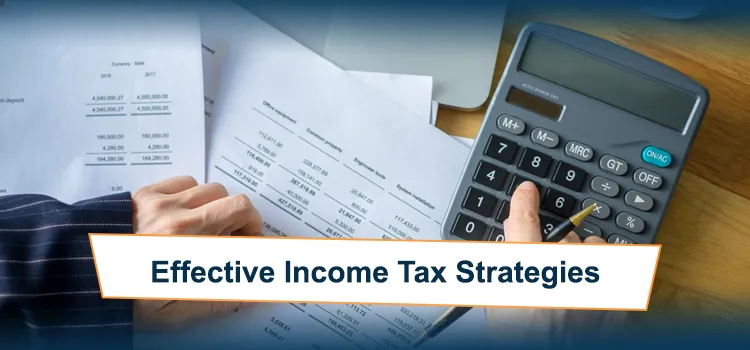
February 15, 2019 |Tax


In the current, ever-evolving business environment, tax season can often be a burden for business owners. However, implementing smart tax mitigation strategies can substantially reduce your tax liability, optimize your financial standing, save you money, and still ensure your compliance with tax regulations.
By understanding what it means to mitigate your taxes and recognizing the importance of tax mitigation for businesses, you can take control of your financial future.
Tax mitigation is all about finding ways to minimize your tax burden legally. This involves understanding your economic landscape and making strategic decisions that will help you retain more of your hard-earned money.
One of the first steps is to get a deeper understanding of available deductions and credits that you may not be taking full advantage of. These can range from expenses related to operating your business to investments in equipment or employee benefits. Understanding how these elements work together is crucial for any business looking to grow and improve its bottom line.
Effective tax mitigation is important for businesses of all sizes to maintain financial stability and growth. It helps ensure that you are not overpaying on taxes, allowing you to reinvest savings into your business operations, take care of employee benefits, or expand projects. More so, a carefully designed tax strategy can provide a competitive edge in your industry by making available capital that can be used for growth.
Let’s uncover essential knowledge and actionable strategies to empower your business toward effective tax mitigation:
Implementing income tax mitigation strategies is essential, as it ensures that you only pay the taxes that you owe. This can include utilizing tax credits and deductions and making informed financial decisions to reduce your taxable income. Understanding your tax bracket and planning your income accordingly can also lead to significant savings.
Planning for inheritance taxes is crucial for preserving wealth for future generations. Creating a well-structured estate plan and using available tax exemptions can reduce the amount of inheritance tax that your beneficiaries (those who inherit your assets) will have to pay.
Strategies can include gifting assets while you’re still alive, setting up trusts, or making charitable contributions. Consulting with a financial advisor can help you create an effective plan that minimizes the tax burden on your beneficiaries.
One of the simplest ways to mitigate taxes is by taking advantage of every deduction and credit available to you. This may include deductions for home office use, travel expenses, or marketing costs. Be proactive in identifying and claiming these benefits.
The legal structure of your business can significantly affect your tax burden. Business structures like a sole proprietorship, partnership, corporation, or limited liability company (LLC) each have unique tax implications.
Choosing the appropriate legal or organizational structure for your business or financial activities can improve your tax efficiency and possibly reduce your tax burden.
Opt for a business structure that provides benefits in terms of taxation and supports your long-term business goals and objectives.
When making business decisions, carefully evaluate how those decisions will affect your tax situation in order to achieve the best possible financial results. Every business decision comes with tax implications. Whether it's hiring employees, purchasing equipment, or expanding operations, consider how each decision affects your tax situation. Working with a tax professional can help you navigate these choices wisely.
Contributing to retirement accounts not only secures your financial future but also provides immediate tax benefits. For instance, contributions to a 401(k) or an IRA can reduce your taxable income for the year, resulting in a lower tax bill.
Maintaining accurate records of your business transactions and expenses is crucial for effective tax mitigation. Additionally, seeking the expertise of an accounting firm can provide invaluable insights into your tax strategy and help you avoid common tax-filing errors.
Mistakes during tax filing can lead to costly penalties and lost deductions. Avoiding these errors is essential to preventing penalties and unnecessary tax liabilities.
Common errors include:
By double-checking your tax returns, keeping organized records, seeking clarification from professionals on complex tax matters, and staying informed on tax law changes, you can minimize these errors and optimize your tax filing process.
Budgeting for taxes should be an integral part of financial planning and management for individuals and businesses. By forecasting tax obligations and setting aside funds throughout the year, you can prevent surprises during tax season and ensure that you are prepared for any tax obligations that arise. This proactive approach can lead to more informed financial decisions and greater peace of mind.
Working with a reputable accounting firm for your tax preparation can help streamline the process, navigate complex tax laws, mitigate potential errors, and ensure compliance with tax regulations.
Their expertise and guidance can help you identify and claim all the tax deductions (expenses you can subtract from your taxable income) and credits (reductions in your tax bill) for which you qualify, ultimately reducing your tax liability and saving you time and money.
Embracing proactive tax mitigation strategies is essential for optimizing your financial standing and ensuring long-term sustainability. By implementing the strategies outlined in this blog and seeking professional guidance when necessary, you can navigate the complexities of taxes with confidence and work towards achieving your financial goals.
If you're still struggling with the burden of taxes on your business, QMK Consulting is here to help.
Our team of certified professionals, located across various countries, collaborates to provide top notch bookkeeping, auditing, financial advisory, and tax services. We aim to save you both money and time, allowing you to focus on what truly matters which is growing your business
Mitigation in tax refers to the proactive measures individuals and businesses take to minimize tax liabilities legally and optimize their financial positions.
You can mitigate taxes by maximizing deductions and credits, choosing the right business structure, and making strategic financial decisions.
High-income earners can reduce taxes through strategic financial planning, investment diversification, and utilizing tax-efficient strategies to optimize their tax burden.